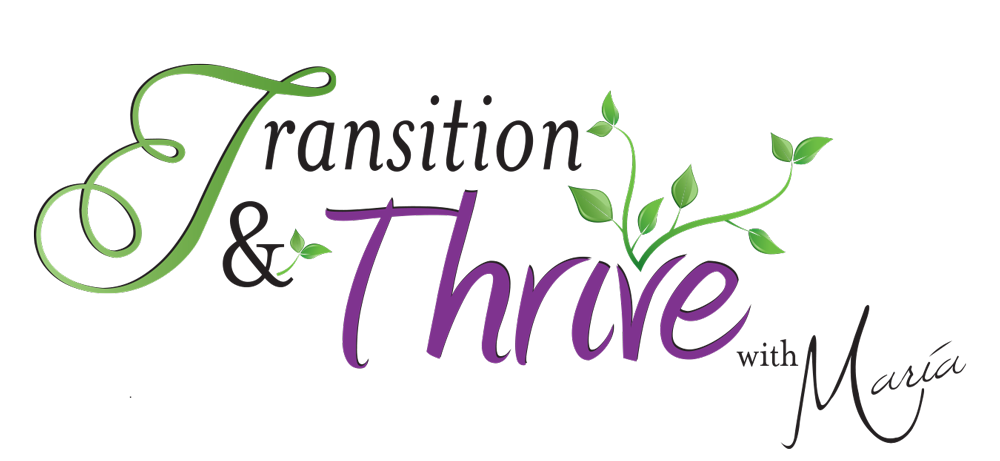Change is certain to happen. According to the Greek philosopher, Heraclitus, “The only thing that is constant is change.” If this is true, and I believe it is, coping with life changes and transitions should come more easily to everyone, don’t you think?
Yet, many shudder at the thought of change, some bury their heads under the covers and hope it will go away, while others open their arms and welcome the opportunities change can bring.
Heraclitus’ philosophy is a good starting point for those who shudder and duck and cover when they face a major change in life. It may help to do a little reframing and think about change differently.
Heraclitus describes life as a river. The rapids and the steady flow, the cascades and silky smoothness, swirls and swells are all part of the ride.
One way to approach change is to do as Heraclitus would—go with the flow. Enjoy the ride, as wild as it may be.
This, of course, is easier said than done when you are coping with life changes and transitions. So let’s look at some ways to make the journey through change easier.
Accept that Change is Unavoidable and Often Out of Your Control
There are so many different kinds of change in life. Some are expected and can be planned for, such as graduations, having a baby, empty-nesting, or retirement. Most of these are happy circumstances and you wouldn’t want to miss them.
And some come without warning—sudden illness, accidents, or the loss of someone important in your life. These you could do without.
Most people experience many of these life-altering moments in their years on earth. The ones you can plan for are easier to accept, while those that come out of the blue can knock you upside down and require a lot of recovery time.
Coping with life changes and transitions like these are made easier when you accept that much of what happens is not within your control. Take control of what you can, and let the rest go. The Serenity Prayer is one of my “go to’s” when I’m feeling out of control.
“God, grant me the Serenity to accept the things I cannot change, have the Courage to change the things I can, and the Wisdom to know the difference.”
Manage the Stress
Regardless of how the changes in your life happen, the mere experience of the event can change you profoundly. Think about how divorce, whether you asked for it or not, can cause you to wonder who you are now that you’re not Mrs. Somebody. Your friends and family may pick sides. The kids may rebel. You may have to sell the family home and move to another. The financial situation may become difficult before it gets better. You may need to find another job.
With this many changes happening at once, it can’t help but create a change in you. The roller coaster ride through those changes, and where you land when it is over, will be your transitional journey. And on that journey, you will experience a flood of emotions.
It’s no wonder why major life changes are stressful. Reducing your stress in any way possible will make coping with life changes and transitions much easier. When you breathe deeply, take a run or kick-box, meditate or get a massage, you can activate the hormones in your body that lower your stress level. Find the right way for you.
Some stress is good. It can be a motivator. But, too much stress can hold you hostage and keep you stuck in a place that you don’t want to hang out.
Embrace the Emotions
Now, that’s an odd way to put it! How do you embrace something that doesn’t feel good to you? Like fear, uncertainty, grief or anxiety. I say “embrace” it because that is what allows you to take some control of it, rather than allowing the emotion to control you. It offers you a different perspective on emotion.
Take fear for instance. The feelings you might experience from fear are a pit in your stomach, shaking, sweating or unable to think clearly, to name a few. What if you reframed the fear? Instead of feeling fearful, call those feelings excitement. When you are excited you may also have a pit in your stomach, shake at the knees and have sweaty palms. Embrace the feeling and call it something that empowers you. It’s a mindset shift.
You can do this with many emotions. I often think about grief as love that has nowhere to go—so I channel the love in another direction. It makes me feel better.
Plan for Change
Although there is only so much you can control when it comes to life change, there is some benefit in planning for change that is inevitable. You may not know the exact timing or scenario, but you can pretty much count on things changing at the most inopportune moments. That’s how life works.
Feeling prepared can lower your stress and keep your emotions in check. Creating a checklist of things you want to do when something major happens can help you and help those who are there to help you through whatever the event may be.
Here are some ideas to get you started.
- Develop a “things to know should something happen to me” document. Include all the important account numbers, links, and passwords so your designated person can pay your bills or call your friends and family.
- Make a list of the things you would want someone to bring you should you be hospitalized.
- Make a list of everything you would want to take out of your house in case of an emergency and you couldn’t get back in for a while.
I don’t suggest you start thinking about all the worst-case scenarios and dwell on them. Just make the lists and be prepared. Peace of mind is the goal.
Take Mini-Breaks
Rest your mind. When coping with life changes and transitions, taking a break is important. Stop thinking so much. Turn down the volume of your self-talk, especially the negative thoughts that can swirl around in your head.
What is your favorite way to “veg-out?” Binge watch a favorite program that takes your mind off what you’re going through. Play a mindless game on your smart device until you realize you’ve spent an hour not thinking about the situation that weighs heavy on your heart right now. Play with your pets. Take an amazing walk in nature and focus on how gorgeous it is. Sit by the ocean or a babbling brook and listen to nothing but the sounds you hear. Put earphones on and sit quietly with a guided meditation.
Taking mini-breaks does your mind, heart, and soul a lot of good when practiced at regular intervals.
Build Your Resilience Muscle
Bouncing back from adversity when you are coping with life changes and transitions isn’t easy, or for the faint of heart. One way that can help is to think back to times in your past when you have bounced back successfully. What did you do then that you can apply to what is going on now? Which lesson that you learned could be put into practice to make this time easier?
Think hard about those times. When you flex that muscle again, it will build your resilience and uplevel your confidence that you can make it through this life change.
Take Care of You
There are so many benefits of self-care. Especially when life turns you upside down, the best way to turn yourself right side up again is by taking care of you. Some of the ideas shared in the “Take Mini-breaks” section can be applied here, too.
Building resilience so you can handle major life changes and transitions is an important part of the equation. Feeling strong and capable comes with getting enough rest, eating well, and moving your body so it feels good. Relaxing in ways that feed your soul with massage, swimming, or gardening, begins to fill your cup.
Think of a beautiful teacup and saucer. When you have replenished your cup, and keep it full to overflowing by taking care of yourself first, then you can give from the overflow. With a full cup, your stress level is managed, it’s harder to get you rattled, and you can make better decisions.
Take Care of You first! It will help a lot when you are coping with life changes and transitions.
Ask for Help When Coping with Life Changes and Transitions
Being a lone wolf, withdrawing from your life, or struggling to figure things out can make your head hurt. And it can keep your heart feeling heavy. Share your burden with others you trust and lighten your load.
When it comes time to take control of your situation and move forward, think of yourself as the Chairperson of Your Life. Every great chair needs a Board of Directors. These are people who will lift you up and encourage you. They will be good at things that you’re not expert in. Choose people who can fill roles that support you at this point on your journey—you can add other people when things shift for you.
Who can you ask to be a member of your board?
Each of these strategies can add powerful tools to your treasure chest. They are ones you can adapt to your own situation while you are coping with life changes and transitions. Once you’ve adapted them, you get to apply them and practice them until you have created new habits and integrated these strategies into your life. They become tools in your treasure chest forever that build resilience.
Step Onto Your Bridge
When life-changing moments flip your world upside down, I create a bridge for women so they can turn chaos into calm, build resilience and learn to live a life guided by their own values and vision. If you’re ready to take the first step onto your bridge and explore how change can impact you and how to move through it with more dignity and grace, get my free ebook From Darkness to Light: Learning to Adapt to Change and Move Through Transition now.


Hello. I just read your your information about change and transit and I found it very interesting. I really liked how you added the Greek philosopher. I like Ancient Greek stuff. I was wondering if I could use a quote in your information for my homework. I will put your website address and name on it so it’s not Plagiarism. I just wanted to ask if I was aloud to use it?